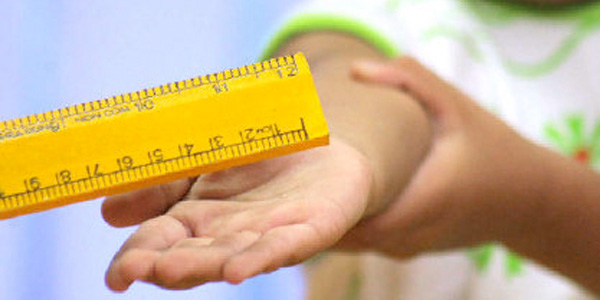 Recently, someone put out a request on Twitter for Asian views on spanking after reading a blog post on Racialicious.com on the same subject, but from the African American point of view. Our humble editor, Ernie passed it on to our internal mailing list, and the response was immediate.
Recently, someone put out a request on Twitter for Asian views on spanking after reading a blog post on Racialicious.com on the same subject, but from the African American point of view. Our humble editor, Ernie passed it on to our internal mailing list, and the response was immediate.
Ben was first to comment, asking “What’s so curious [about spanking]? The answer is: we do”. Corporal punishment, like spanking or my own mom’s favorite of using a ruler on the back of the hand, does seem more prevalent in cultures outside of the United States.
In the U.S. we have this civilized notion that you don’t lay a hand on your children, that instead you get by with time-outs, reward systems, and self-control. As a parent of a six year old, and one who grew up in the U.S. with these ideals, I can tell you that it’s easier said than done. Before I became a parent, I certainly believed that my parents “abused” me in the sense that they used limited forms of corporal punishment. Now, having a child makes me wonder how my parents didn’t use it more.
With my own daughter, we’ve tried to refrain from any types of physical punishment and I can say we’ve generally been successful. The exception has been a rare pat on the bottom when she’s really been misbehaving and we’ve lost all of our patience. Overall I’d have to say we’ve been pretty lucky with less drastic discipline measures like withholding toys, TV time, and bartering good behavior for prizes. But I have to admit the idea of spanking does seem really appealing when she’s been acting out. That’s where there’s an advantage to having two parents; the second one can always step in and intervene before it gets to that point.
In China, corporal punishment used to be standard in schools until 1949 when it was banned, but it’s believed caning and paddling are still used in some schools in China. It’s estimated still 60% of Chinese children receive some form of corporal punishment. So it’s still the norm for those children, even if it’s not for kids in the U.S.
The same holds true in other Asian countries like South Korea, Singapore, or Malaysia, where corporal punishment in schools is legal. In other Asian countries, it’s supposedly illegal, like in Taiwan, Philippines, Thailand, Japan, and India, but it’s believed to be widely practiced in schools in those countries.
I remember when I was five years old and my mom was trying to get me to remember multiplication tables. (Yes, I said multiplication tables.) If I got one wrong, it meant a slap on the back of the hand with a wooden ruler. You can be sure I learned my tables fast. As I grew up, the punishments continued, and it was worse for me than for my sisters. There was rule in my house that if my sisters did something wrong, I got punished, since I was the male and was supposed to know better to keep my sisters safe. In the same vein, I noticed when reading about corporal punishment in various Southeast Asian countries, where it is legal or practiced, it tends to be only for male children.
There are plenty of studies that show that corporal punishment, like spanking, is perhaps the least effective and most damaging form of punishment on children. With that said, it appears culturally that many Asians and Asian Americans have yet to embrace a philosophy that doesn’t include corporal punishment. As an Asian American, did your parents use any corporal punishment on you when you were growing up? Did it affect you negatively, and do you plan on using corporal punishment on your children?







